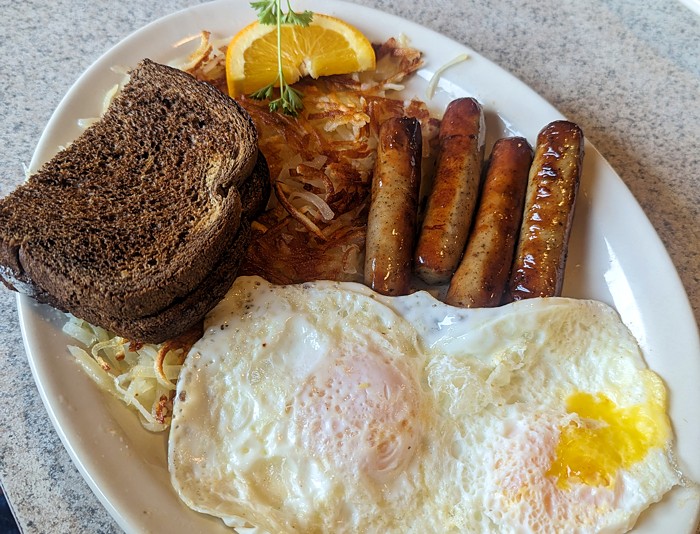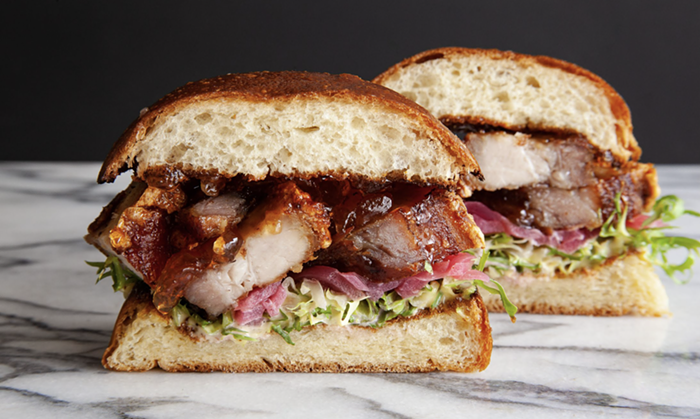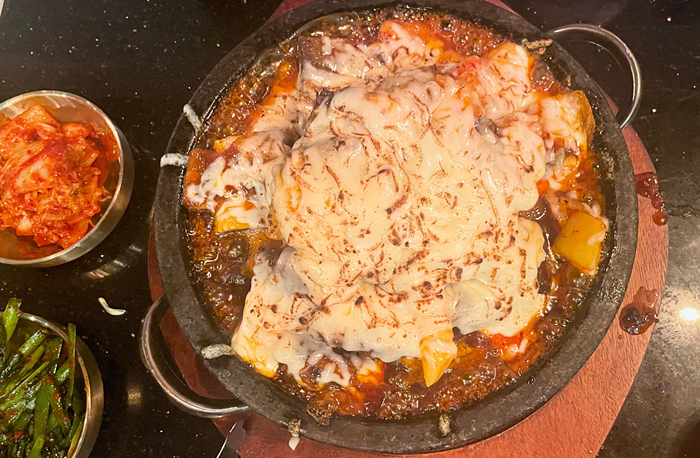
On May 4, chef Renee Erickson's company Sea Creatures (which owns and operates the Walrus and the Carpenter, Barnacle, and the Whale Wins, as well as the forthcoming Bar Melusine, Bateau, and General Porpoise Doughnuts) raised all employee wages to $15 an hour and eliminated discretionary tipping, opting instead for an automatic 18.5 percent service charge. Since implementing the original service charge, Sea Creatures has increased it from 18.5 to 20 percent.
"After about eight weeks in, it became clear that 18.5% wasn't quite adequate," wrote Jeremy Price, Erickson's business partner, in an e-mail. (According to Sea Creatures' disclosure statement printed on all its menus and receipts, most of the money generated by the service charge, as well as a cut in the owners' salaries, was being used to cover the wage increases, as well as health and retirement benefits.) "We are still fine-tuning as we go," writes Price, "but so far the change has been really positive."
Before making the transition, Erickson and Price (Chad Dale is also a partner in the company) explained that the new system has less to do with Seattle's new minimum wage law than it does with their desire to address the severe income disparity between front-of-house and back-of-house workers.
“The industry needs to evolve,” Erickson said. “The system we’ve adopted in America favors the front of the house in financial value, and that’s really not fair—at least we don’t believe it to be. We’re taking that 18.5 percent [service charge] and redistributing it to everyone... Back of house is still not making as much, but it’s better. It’s moving in the right direction.”
Almost three months in, the system seems to be working. "We've been able to keep server/bartender wages right where they were when we still accepted tips," wrote Price. "Kitchen workers have seen 5-7 percent pay increase, and dishwashers have seen a 20-30 percent pay increase."
Additionally, reports Price, most eligible employees have enrolled in the company's health plan and matching retirement savings plan. Any Sea Creatures employee working at least 25 hours per week (about four shifts) can receive health insurance, while those working at least 1,000 hours per year (roughly 19 hours per week) can enroll in a matching 401k program. Price says they would like to extend benefits to even more employees and, to that end, are planning to slowly change how they schedule shifts so that more workers can be eligible.
"This will mean higher costs for us as employers," wrote Price. "But we will not be raising the service charge past 20%."
Customers accustomed to tipping (and giving servers and bartenders more than 20 percent) are still able to do so—and many do. While Sea Creatures restaurants no longer accept tips via credit card, Price says that they are seeing more cash left on tables than they have in the past.
While some consumers remain skeptical about the service charge model, Erickson and Price may well be operating ahead of the curve. As cities like Los Angeles and New York begin implementing higher minimum wages, restaurant owners will need to figure out how to deal with rising labor costs as the movement for living wages grows.
Last week, national food news site Civil Eats featured Sea Creatures in an article titled "Goodbye Tipping, Hello Living Wage: The Changing Face of Progressive Restaurants," which also looked at new tipless restaurant business models being introduced in cities like Oakland (which raised their minimum wage in March). In April, the Washington Post talked with restaurant owners in DC and New York City who eliminated tipping without any legal prompting. And Jay Porter, who operated a tipless San Diego restaurant, the Linkery, for more than six years, explained why he did so for Slate back in 2013.
Erickson and Price have always emphasized that moving to the tipless model, more than being a way to adapt to changing labor costs, is about investing in and retaining skilled workers.
“The conversation we always defaulted to was the legitimizing of the [restaurant] industry that we felt wasn’t there,” Erickson told me in April. “There’s this idea that being in a restaurant is a stepping-stone to whatever you’re going to do when you grow up. I definitely chose a career that I’m super-proud of, and it feels hurtful when people are not treating you as equal to a cabinet builder or some other person in a craft."
"We are proud to have one of the best compensated and supported restaurant staffs in Seattle," wrote Price last week. "Our people are awesome and they are absolutely worth it."


















